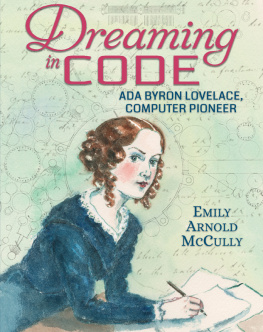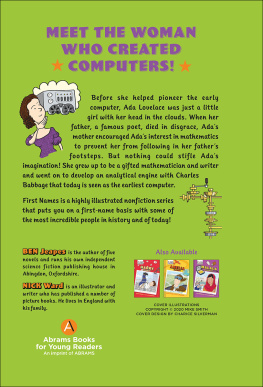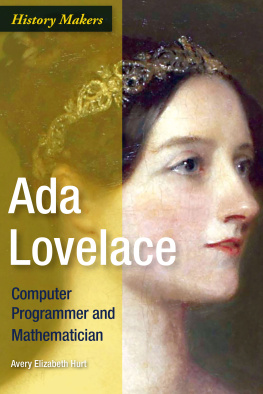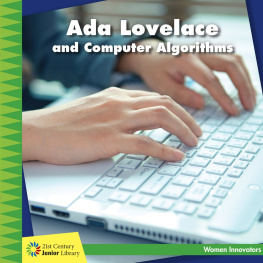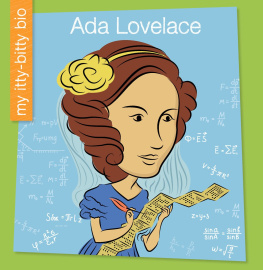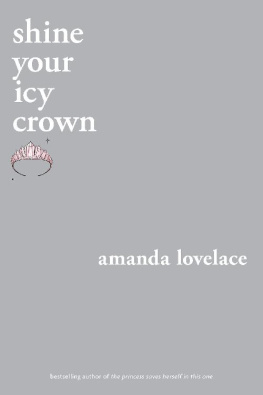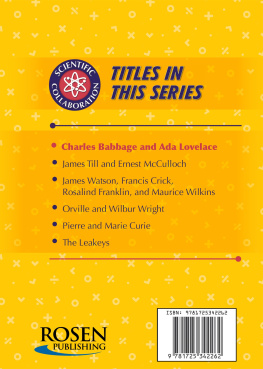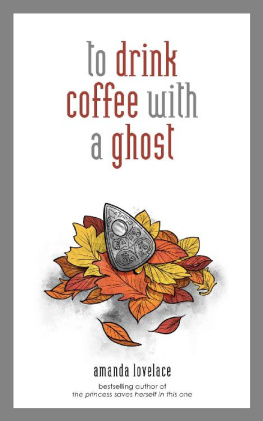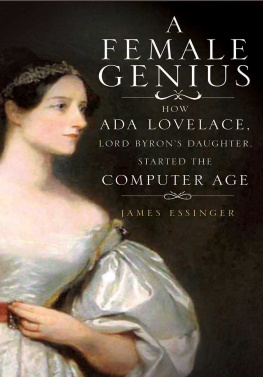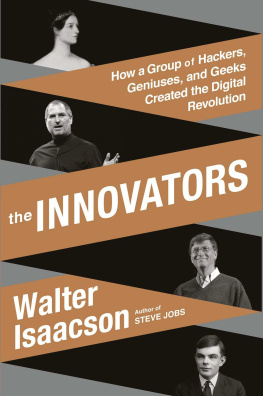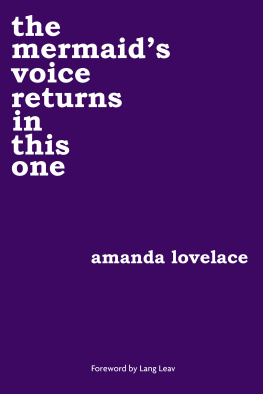Yet she thought she possessed singular qualities of genius and aspired to outshine her famous poet father, Lord Byron. She knew she was an intuitive discoverer of the hidden realities of nature, with immense reasoning faculties driving her toward an uncharted destiny.
She and the mathematician and inventor Charles Babbage formed a collaboration that was a kind of alchemy. Her energy, boldness, Fairy magic he called her an Enchantress pushed him to develop his Analytical Engine, an early mechanical computer. Then she explained the invention to the world. But the world wasnt ready to imagine what Ada imagined computers that would process information by themselves.
She seems to have realized, as Babbage did, that their work would be appreciated only by future generations. She wrote him:
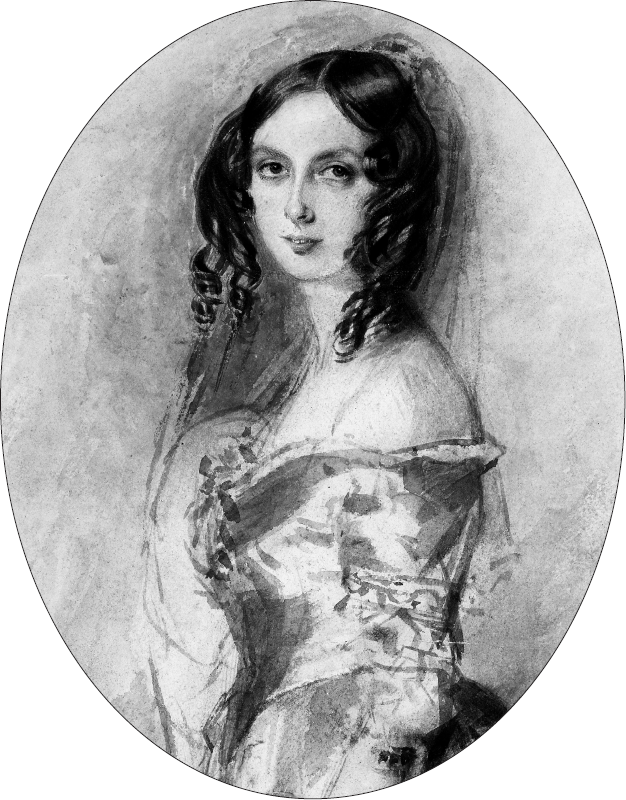
A portrait of Ada Lovelace, age twenty
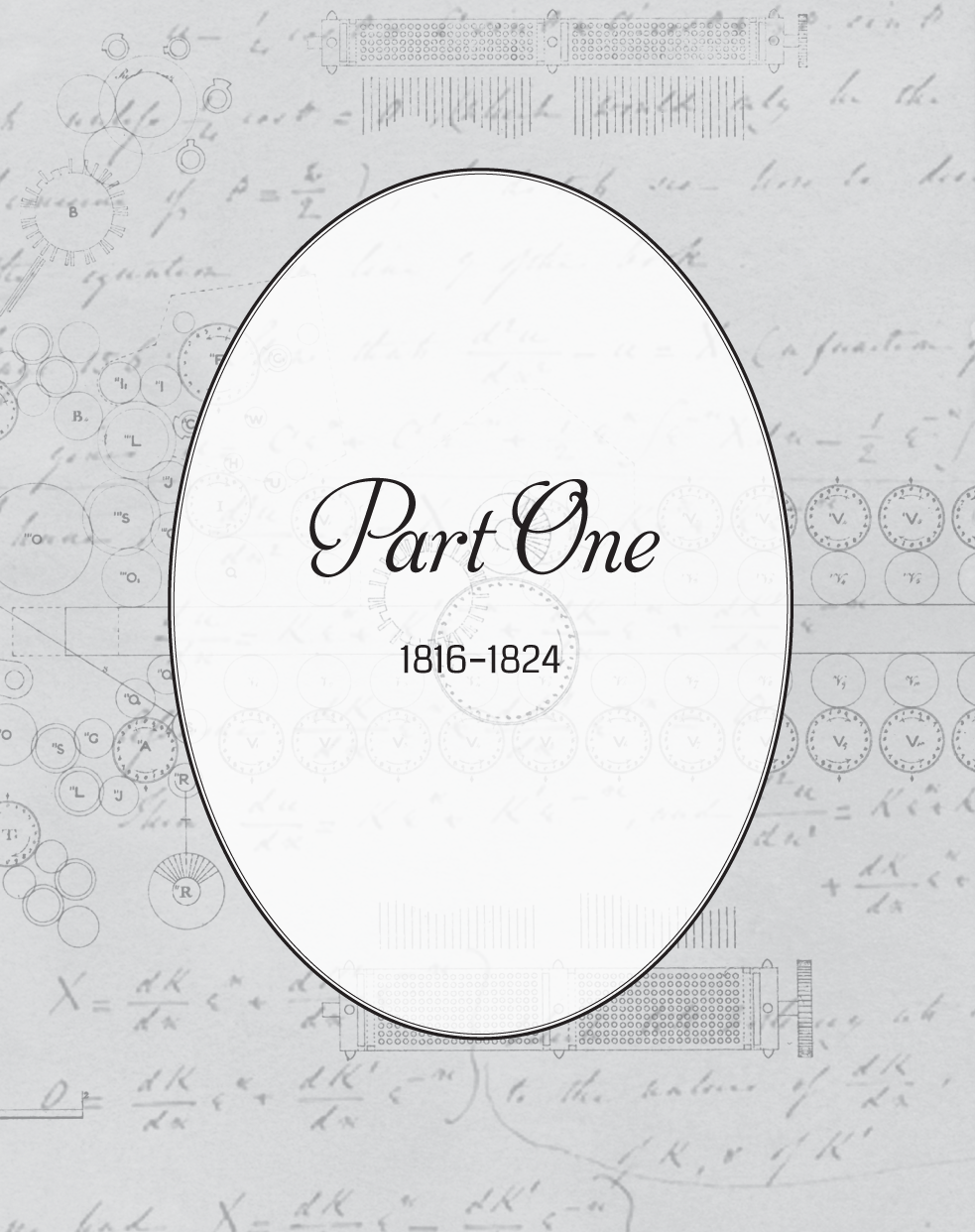
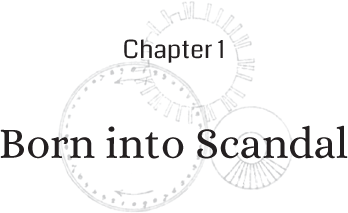
Augusta Ada Byron was only a month old on January 15, 1816, when her mother, Anne Isabella Byron, snatched her from her cradle and fled London.
Lady Byron and her husband, George Gordon, Lord Byron, had been married just a year. During their months together, he was rarely tender mocking her, howling that marriage had destroyed him, proclaiming his love for his half sister, confessing his past misdeeds, and recounting the madness that ran in his family. Often, he drank until he passed out.
Lord Byron was drunk the night Lady Byron told him she was leaving him in the morning and would take Ada with her.
He languidly asked, When shall we three meet again?
She answered, In Heaven, and ran from the room.

Titled, handsome, reckless, and irresistible, Lord Byron was Europes first pop superstar. He had become famous overnight with the publication of Childe Harolds Pilgrimage, a bold novel in verse about the travels of a hero resembling himself who searches for meaning in nature as the world of men disappoints him.
There is a pleasure in the pathless woods,
There is a rapture on the lonely shore,
There is society where none intrudes,
By the deep Sea, and music in its roar:
I love not Man the less, but Nature more,
From these our interviews, in which I steal
From all I may be, or have been before,
To mingle with the Universe, and feel
What I can neer express, yet cannot all conceal.
The poems beauty and romantic intensity, combined with its hints of autobiography, created a cult of Byron. Men practiced his scowl before their mirrors. Women threw themselves at him, and he responded with gusto. One lover called him mad, bad, and dangerous to know.
Byrons future wife, Anne Isabella Noel, called Annabella, was an only child born to older parents who cherished her intelligence and had her tutored from the age of fourteen in literature, philosophy, astronomy, and especially mathematics. Annabella was also known to be a prim, religious woman with strict morals. So it struck others as odd that she married Lord Byron. She had known he was wild; everyone did. A sharp-tongued grande dame took note of their engagement with this remark: How wonderful of that sensible, cautious Prig of a girl to venture upon such a Heap of Poems, Crimes & Rivals. Annabella, however, was not really behaving out of character; she believed she could tame Lord Byron if they married.

Anne Isabella Noel, Lady Byron, shown here as a prim young woman
Lord Byron did seem to be taken by the young womans intelligence (if not by her priggishness), and he also seemed taken by her familys wealth. She was in line to inherit a fortune, and Lord Byron hoped it would restore his finances. He was a spendthrift, like his father before him. His careless extravagance meant he was chronically in debt. He and Annabella were married in January 1815. The inheritance was delayed, and there was no telling when it might come to Lady Byron.
The newlyweds had both made an awful mistake.
Lady Byron left, as she had said she would, in the morning. It was now up to her alone to raise the child of her bitter union.
Annabella had written out a perceptive analysis of Byron, noting his habitual passion for excitement, which is always found in ardent temperaments. She added, an Ennui of a monotonous existence... makes [him] seem to act from bad motives when in fact [he is] only flying from internal suffering.... Drinking, Gaming &c. are all of the same origin. (She noted later that her reflections about his character were written under a delusive feeling in its favor.) Should hints of these manias appear in Ada, Lady Byron was determined to suppress them. Ada would not even be told who her father was; the child could not be allowed to form any attachment to him.

George Gordon, Lord Byron, was an English Romantic poet who enjoyed cultivating his reputation for wit, recklessness, and cruelty.
It wasnt easy for a woman to obtain a separation during that era, and custody of a child usually went to the father in a separation or divorce.
But rumors had already been circulating through London society that Byron engaged in homosexual acts (then a capital crime) and that he had fathered a child by his half sister. These allegations ensured that custody of Ada would almost certainly go to Lady Byron.
Lady Byrons lawyer arranged for Ada to be given over to her mother but as a ward of the chancery, the ancient court that oversaw estates. Lord Byron was insulted by this stipulation because it implied that he would try to take forcible possession of his child. He said he had no intention of doing so, but Lady Byron cultivated her role as victim and martyr by insisting that he did. Her great willpower and her desire to be viewed as a paragon of virtue made her a formidable figure, even in her early twenties. She was fashioning a career out of having suffered at Lord Byrons hands, while at the same time clinging to the aura of his fame.

